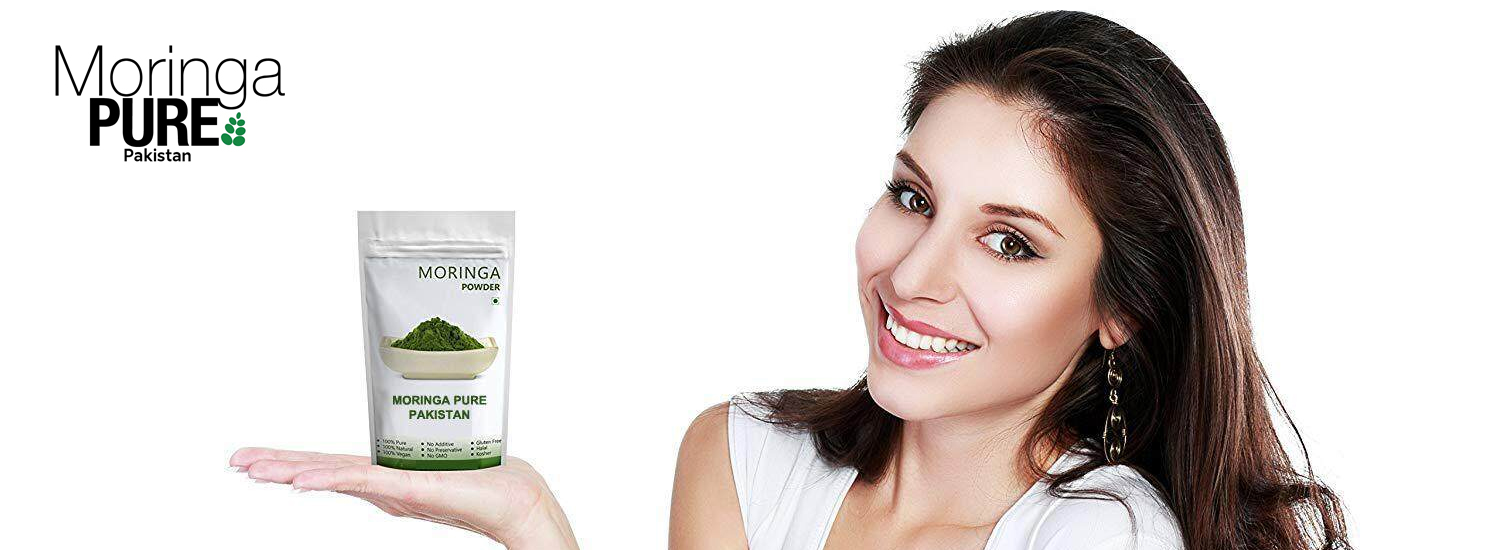Moringa Oleifera, often called the “miracle tree,” is rapidly gaining recognition around the world for its exceptional nutritional profile and therapeutic properties. In Pakistan, where malnutrition and maternal health remain national concerns, Moringa is emerging as a homegrown solution that holds immense promise, particularly for nursing mothers and growing children.
According to “Pakistan: A World-Class Producer of Moringa Oleifera Powder”, Pakistan is one of the most suitable countries for cultivating high-quality Moringa due to its optimal climate and fertile soil. Locally grown Moringa not only has a superior nutrient profile, but also presents a sustainable and affordable option for improving health outcomes nationwide.
Moringa is often referred to as a superfood for good reason. Its leaves are packed with nutrients that are vital for overall health and well-being. They contain all nine essential amino acids, along with a remarkable concentration of vitamins and minerals. Moringa has been found to have 25 times more iron than spinach, 17 times more calcium than milk, 10 times more vitamin A than carrots, 15 times more potassium than bananas, and 9 times more protein than yogurt. It also provides a rich source of vitamin C, vitamin E, and B-complex vitamins, along with high levels of antioxidants and anti-inflammatory compounds.
This powerful combination of nutrients makes Moringa an effective natural remedy for combating malnutrition, boosting the immune system, and promoting energy. The article “Moringa Oleifera Powder & Malnutrition in Pakistan” highlights Moringa’s vital role in addressing nutritional deficiencies, especially in rural areas where access to diverse and balanced diets is limited.
One of the most promising applications of Moringa in public health lies in its benefits for nursing women. As explored in the article “Moringa Oleifera in Pakistan: Miracle for Nursing Women”, Moringa has long been used traditionally and clinically as a galactagogue—a natural substance that increases breast milk production.
For nursing mothers, Moringa can enhance milk supply by stimulating prolactin, the hormone responsible for lactation. Studies referenced in the article indicate a noticeable improvement in milk volume among women who consumed Moringa regularly. This increase in milk supply can be especially important in the early postpartum period when establishing breastfeeding is crucial.
In addition to boosting milk quantity, Moringa also improves the nutritional quality of breast milk. The high concentrations of iron, calcium, and protein help ensure that the baby receives essential nutrients during critical growth stages. Simultaneously, the mother benefits from these nutrients, supporting her own recovery and health after childbirth.
Moringa is also known to provide natural energy and mental clarity, which are incredibly helpful for new mothers dealing with postpartum fatigue and hormonal changes. With its rich mix of vitamin B6, vitamin C, and magnesium, Moringa helps reduce tiredness, support the nervous system, and stabilize mood.
Unlike synthetic supplements, Moringa is a natural, affordable, and accessible option in Pakistan. It can easily be added to meals in powder form, brewed into tea, or taken as a capsule. Its versatility and availability make it a practical choice for families across different income levels.
The broader implications of using Moringa in maternal and infant health are significant. Other countries such as India and the Philippines have already incorporated Moringa into maternal nutrition programs. With Pakistan’s abundance of Moringa cultivation, similar strategies can be adopted here to combat infant malnutrition, promote breastfeeding, and support maternal wellness—all using a plant that thrives locally.
However, increasing awareness is essential. The articles emphasize the importance of educating healthcare providers, mothers, and community leaders about the safe and effective use of Moringa. Doing so could transform public health outcomes, especially in underserved areas.
In conclusion, Moringa Oleifera is not just a nutritional supplement—it’s a national asset. Its natural richness, affordability, and accessibility make it one of the most promising tools in addressing maternal and child nutrition in Pakistan. For nursing mothers, it offers a natural way to improve milk production and energy, while promoting long-term health for both mother and baby. With continued awareness and responsible use, Moringa can help nourish a healthier, stronger generation.
#SupportLocal #WomenEmpowermentPakistan #SmallBusinessLove #BuyLocalSupportLocal #CommunityWellness #MadeInPakistan

